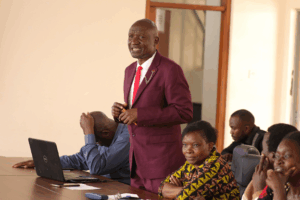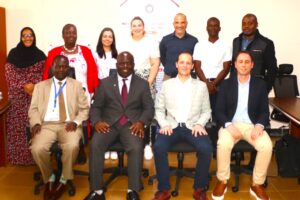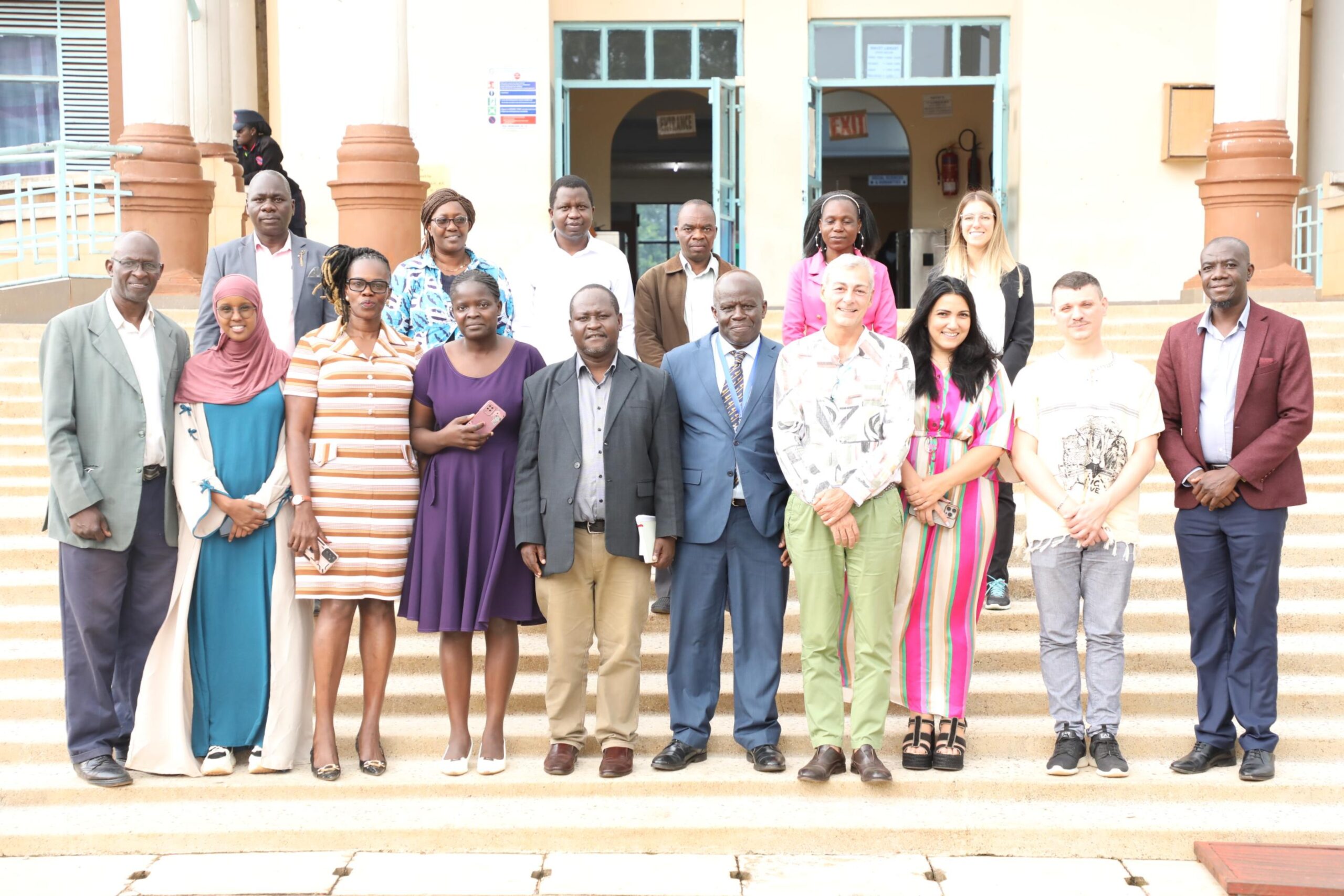
MMUST Scales Up Erasmus+ Partnership From Academic Exchange to Include Grant-Funded Collaboration
Masinde Muliro University of Science and Technology (MMUST) has taken a bold step in strengthening its international collaborations by expanding its Erasmus+ partnership from academic exchange programmes to include grant-funded research initiatives. This strategic shift was unveiled during the Erasmus+ KA171 Programme workshop held on 30th October 2025 at the University under the theme ‘Empowering Change Beyond Borders and Boundaries. The event brought together faculty members, researchers, and international partners to explore new pathways for research collaboration, knowledge exchange, and capacity building under the European Union funded programme. The visiting researchers included Prof. Claudio Longobardi from the University of Turin, Prof. Sofia Mastrokoukou from the University of Salerno, Prof. Matteo Angelo Fabris, and Ms. Beatrice Ragaglia.
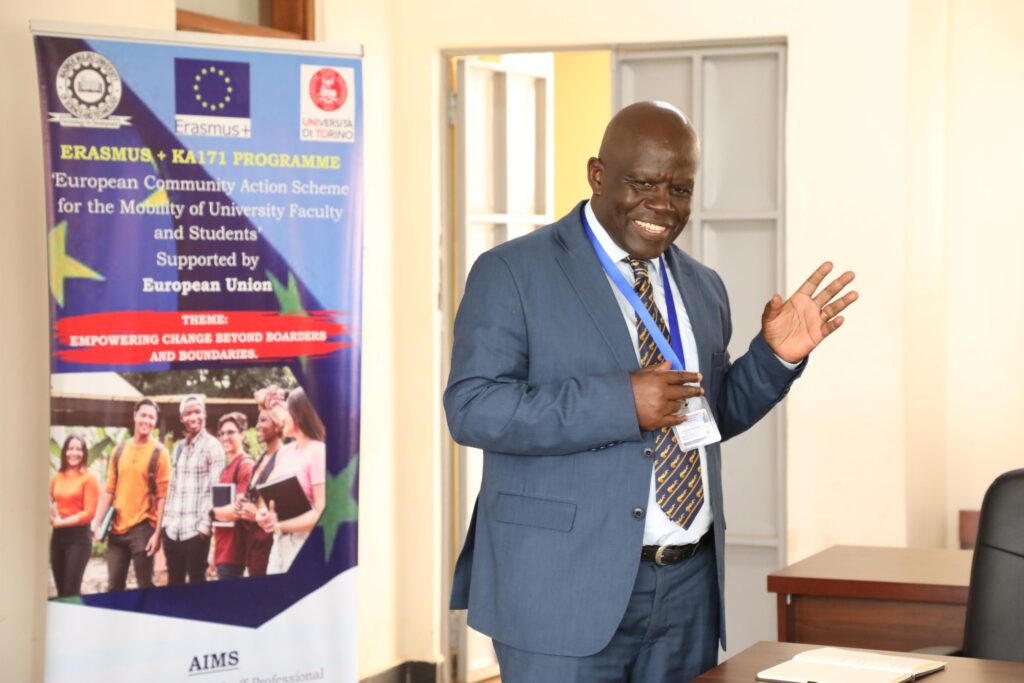
The Ag. Deputy Vice Chancellor (Planning, Research and Innovation), Prof. Peter Bukhala addresses participants at the workshop.
Speaking during the event, the Ag. Deputy Vice Chancellor (Planning, Research and Innovation), Prof. Peter Bukhala, lauded the Erasmus+ collaboration for strengthening MMUST’s global research profile. He applauded Dr. Rose Opiyo, the Project Coordinator, for her outstanding leadership in mobilizing international partners who have continued to support the University’s vision of advancing impactful research, innovation, and community transformation.
Reiterating the DVC PRI, Director of Research and Postgraduate Support- Prof. Francis Orata, highlighted EU-funded grants noting that they have greatly strengthened MMUST’s research capacity, proposal development, and researchers’ competitiveness. Similarly, the Dean, School of Education, Prof. Moses Poipoi emphasized that partnerships like Erasmus+ have provided valuable platforms for faculty and students to interact with international scholars, share innovative ideas, and strengthen their research capacity.
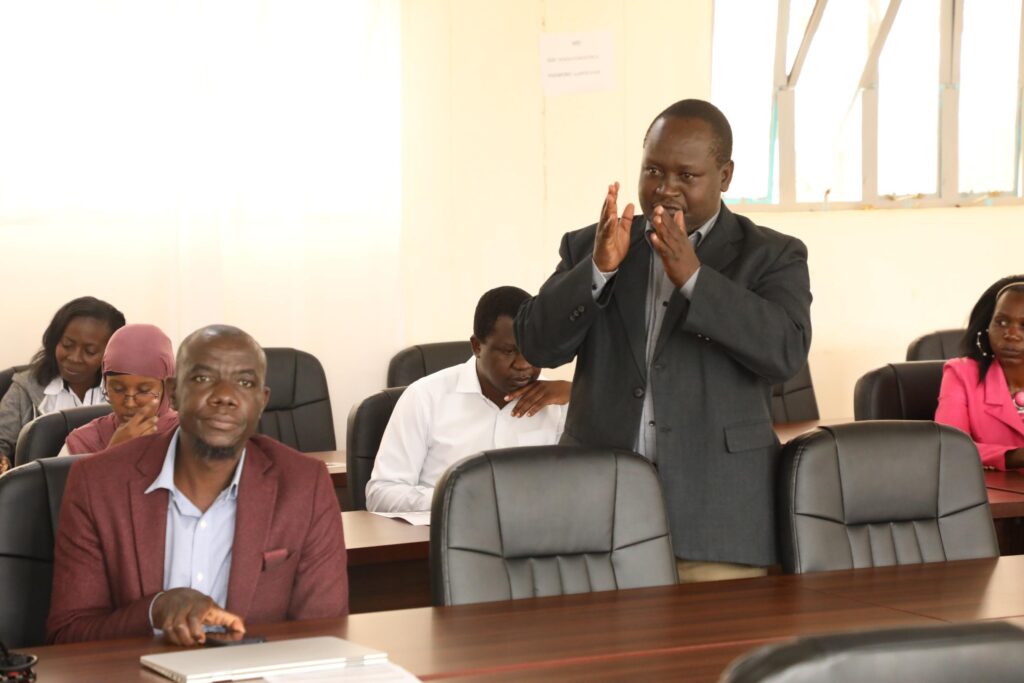
The Dean, School of Education, Prof. Moses Poipoi speaks at the event.
Outlining the project overview, Dr. Rose Opiyo emphasized the importance of global visibility through participation in international conferences and publishing in high-impact journals as key avenues for connecting researchers worldwide.
“It is through such engagements that I was able to establish meaningful links with our current Erasmus+ partners,” she noted. She further appreciated the University Management and the Division of Research, Planning and Innovation for their continued support in enhancing student and staff exchange, as well as promoting international mobility.
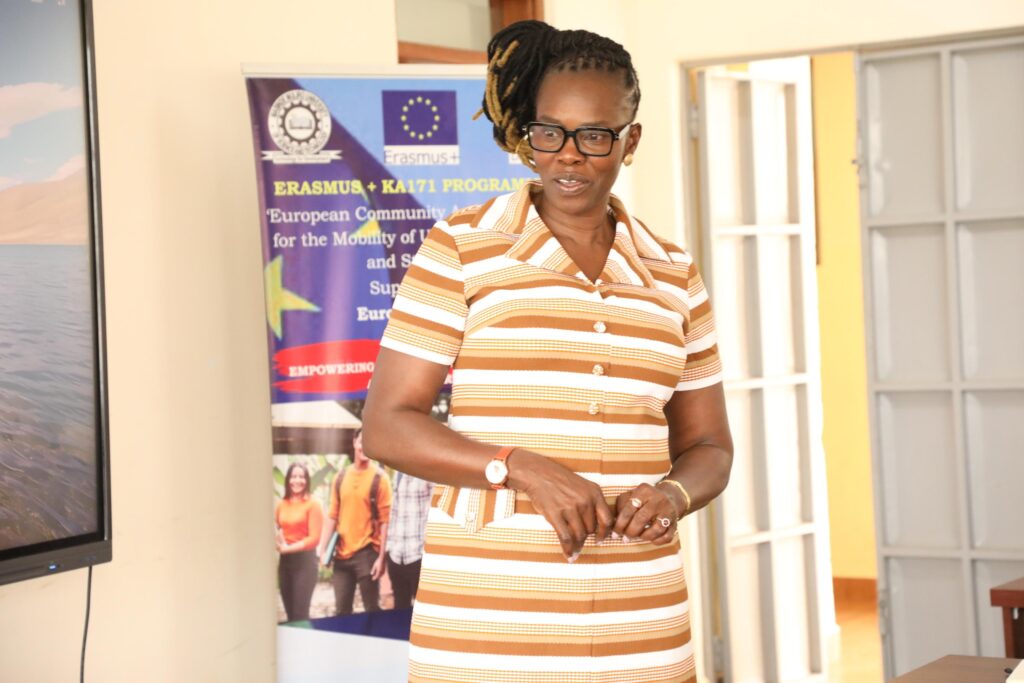
Dr. Rose Opiyo makes her presentation at the workshop.
One of the keynote speakers, Prof. Claudio Longobardi, delivered an insightful presentation on ‘Social Media Cyberbullying and Student-Teacher Relationships.’ He highlighted the profound impact of digital interactions on learners’ psychological well-being and academic performance. He underscored the growing need for educators and policymakers to understand the dynamics of online behavior, emphasizing that cyberbullying not only affects students’ self-esteem but also erodes trust within the learning environment.
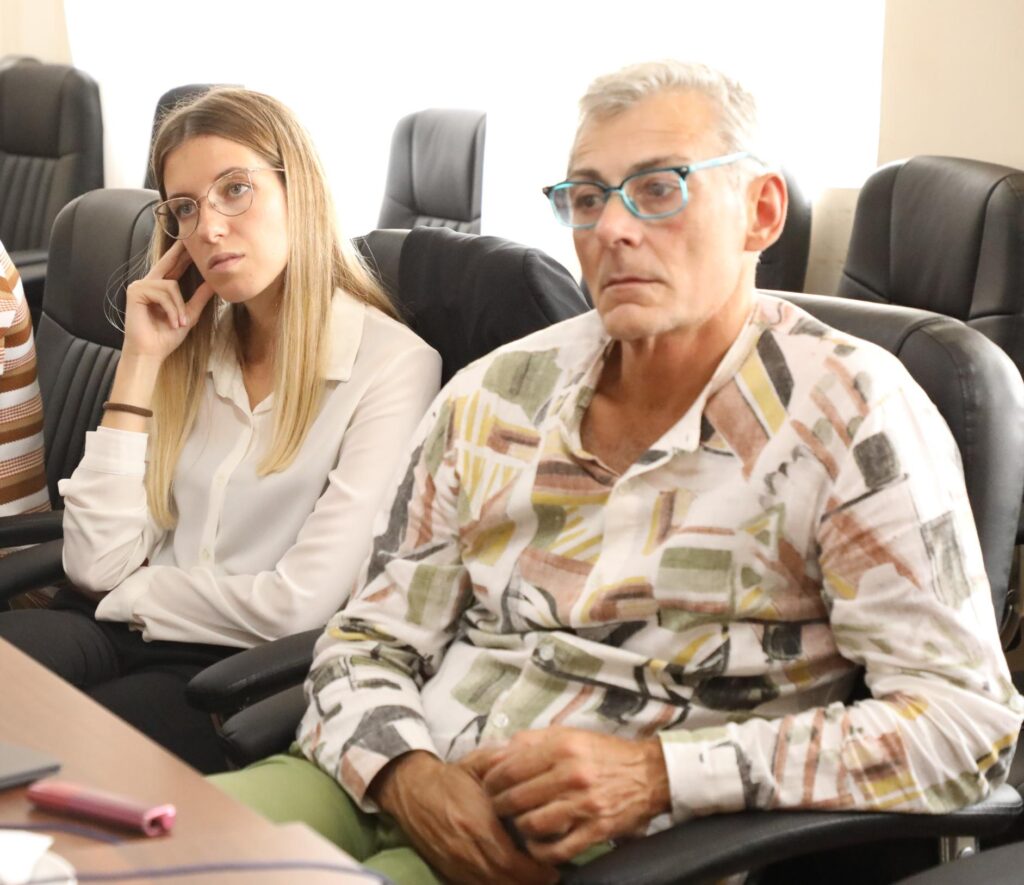
Prof. Claudio Longobardi and Ms. Beatrice Ragaglia at the workshop.
Prof. Longobardi urged the participants to integrate digital literacy and emotional intelligence into their curricula as preventive measures, noting that a supportive and respectful teacher-student relationship remains central to promoting positive learning outcomes in the digital era.
Another exciting presentation on ‘Parental Rejection and Muscle Dysmorphia’ was delivered by Prof. Matteo Fabris. Titled ‘Adverse Childhood Experiences and Risk of Muscle Dysmorphia in Adolescents: Examining the Roles of Parental Rejection and Early Maladaptive Schemas,’ Prof. Matteo explored how negative childhood experiences and parental rejection can contribute to the development of muscle dysmorphia, a body image disorder characterized by an obsessive preoccupation with body image and perceived muscular inadequacy. He explained that such experiences often lead to early maladaptive schemas, which shape how adolescents perceive themselves and respond to social pressures related to physical appearance.
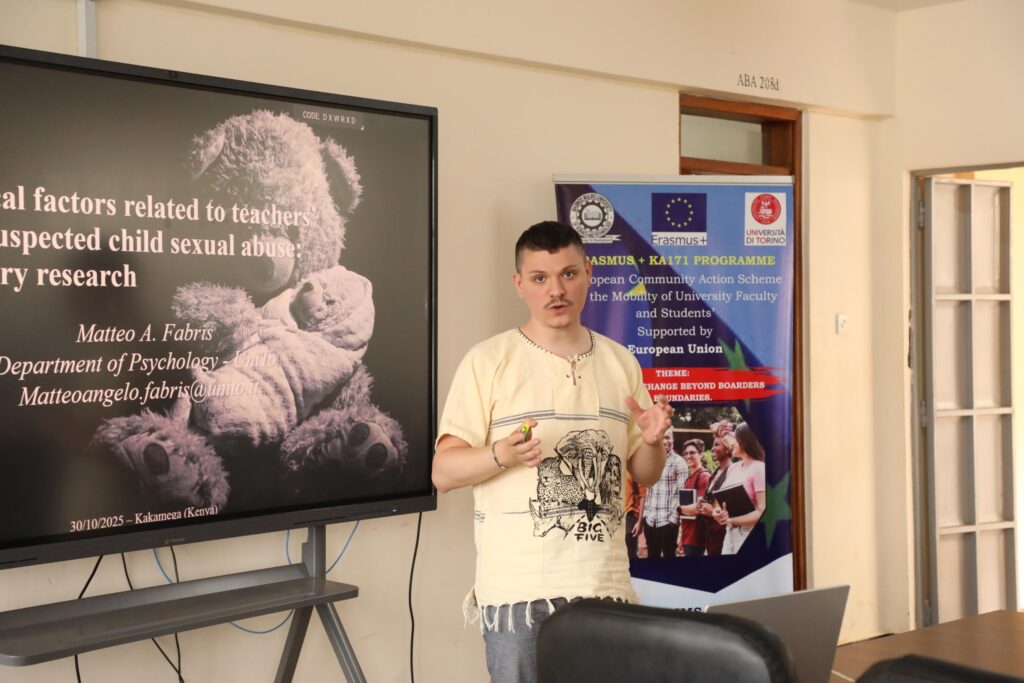
Prof. Matteo Angelo Fabris makes a presentation at the event.The workshop also featured two other presentations from Prof. Sofia Mastrokoukou and Ms. Beatrice Ragaglia who presented on the ‘Psychology of Disability Understanding Resilience and Belongingness’ and ‘School Aged Children’s Socio-emotional Competencies and Parental Practice’ respectively. Prof. Mastrokoukou underscored the importance of adopting inclusive learning environments that promote emotional well-being, self-efficacy, and social integration among learners with disabilities.
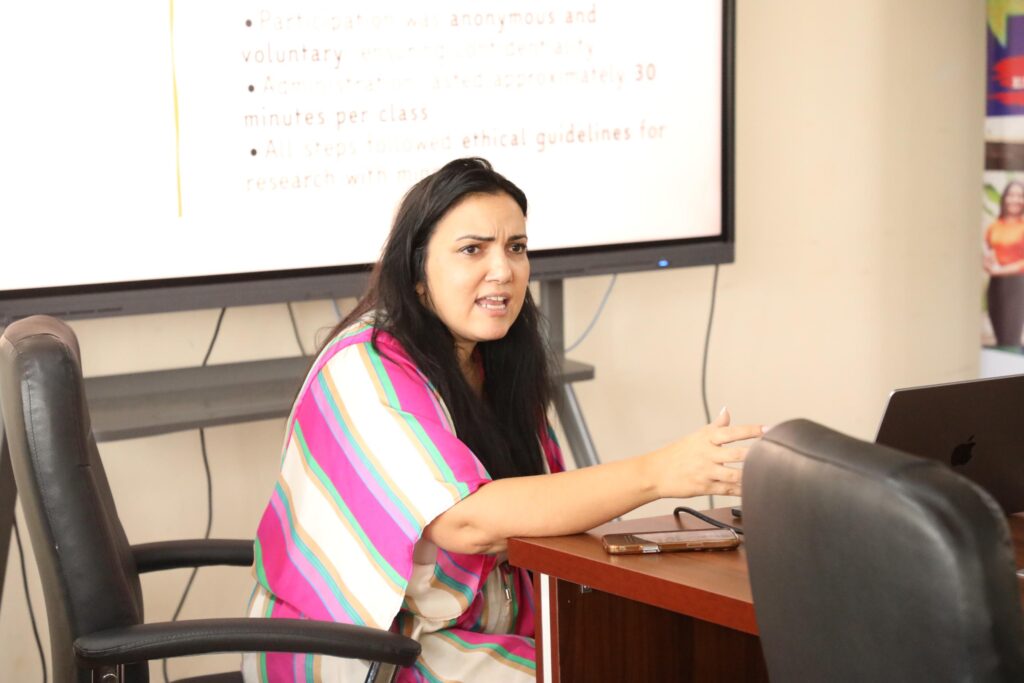
Prof. Sofia Mastrokoukou explains a point during her presentation.
Additionally, Ms. Ragaglia, a postgraduate student at the University of Turin who is currently at MMUST for a student exchange program, highlighted the critical role parents play in shaping children’s emotional development and social adjustment. She pointed out that nurturing parental practices enhance children’s resilience, empathy, and academic engagement, thereby laying a strong foundation for holistic growth.
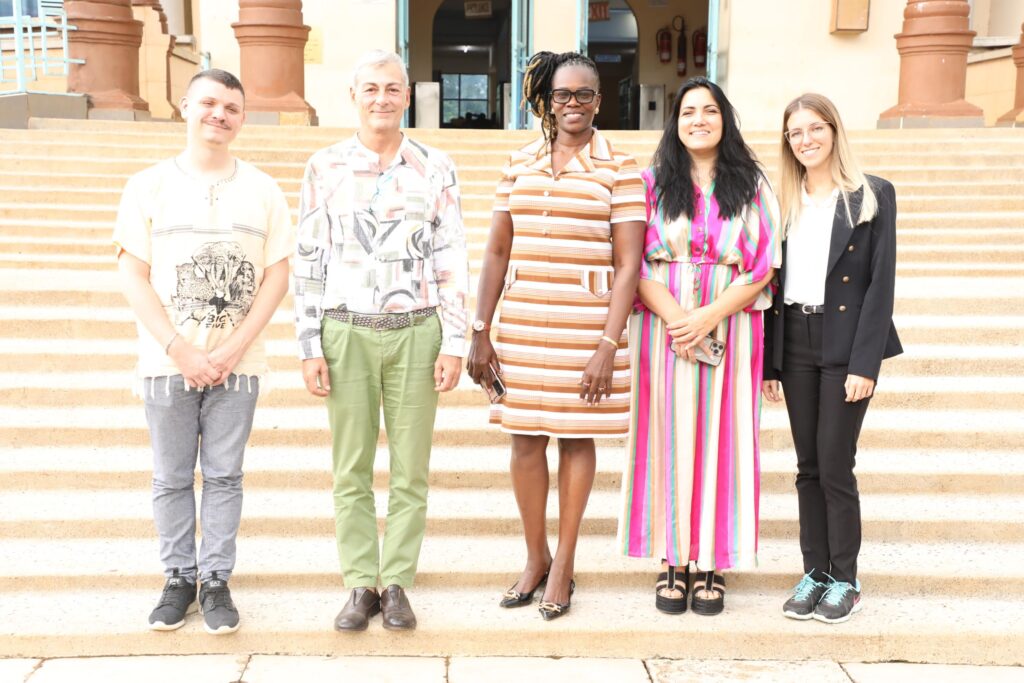
Dr. Rose Opiyo together with the Italian partners.
Notably, the workshop was also attended by the Director of Postgraduate Studies- Prof. Kennnedy Bota, the Associate Dean, School of Arts and Social Sciences- Dr. David Barasa, the Coordinator- Quality Assurance- Dr. Paul Ogenga and Dr. Caroline Wekullo. As MMUST scales up Erasmus+ partnership from academic exchange to grant-funded research, the University continues to position itself as a hub for global collaboration and innovation.
By Linet Owuor
Photos by Wangari Wambugu

